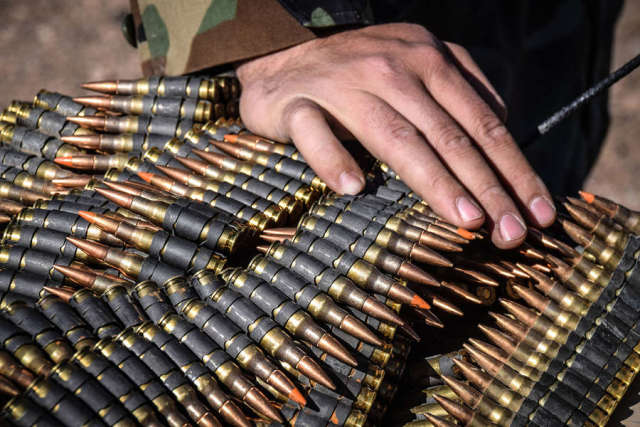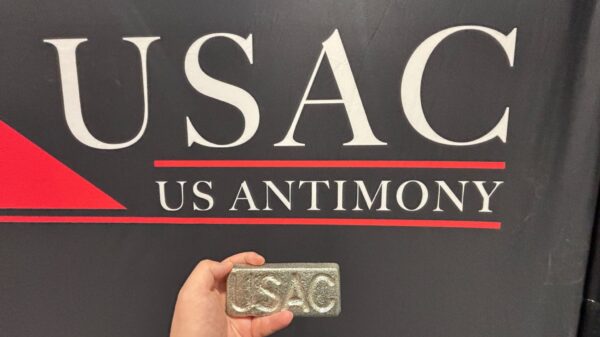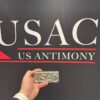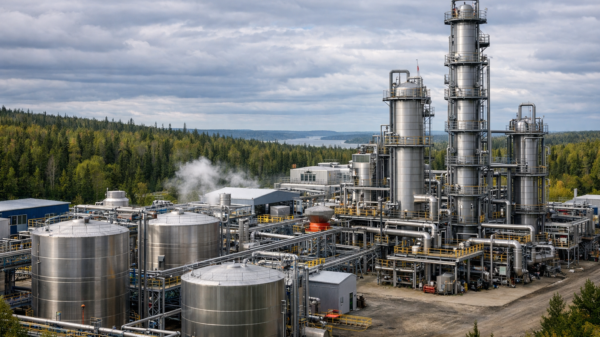Military Metals Corp. (CNSX: MILI) (OTCMKTS: MILIF) (FSE: QN90) moved to position its Slovakian antimony-gold project within a rising global debate this week after the World Economic Forum (WEF) warned that the world faces growing geopolitical and industrial risks linked to antimony supply.
The organization released a November 13 analysis that points to the mineral’s extreme concentration in China, Russia and Tajikistan, and the company said the concerns match the rationale behind its Trojárová acquisition.
China, Russia and Tajikistan currently produce more than 90 per cent of global antimony ore. Industry analysts say this concentration creates supply threats for Western manufacturers that depend on the mineral for munitions, flame retardants, semiconductors and energy storage systems.
China’s recent export restrictions have pushed prices to about USD$50,000 per ton. The World Economic Forum said these market shocks show how exposed supply chains have become. Additionally, the group said refining capacity outside China remains underused, which means the pressure point sits at the mine level.
Military Metals said this view reflects why it moved into Slovakia.
The company’s chief executive, Scott Eldridge, said the WEF’s findings mirror the firm’s belief that Europe needs new antimony sources. He said the company sees Trojárová as a project that could eventually support European industrial and defense resilience. Furthermore, he stressed that it remains at an early exploration stage and faces the full range of development risks.
Eldridge said the WEF’s focus on Central and Eastern European prospects, including Slovakia, adds context to the company’s long-term strategy.
Read more: NevGold delivers major growth at Idaho gold project
Read more: NevGold surges after closing C$10M financing deal
Antimony’s role has grown as defense manufacturers modernize
The World Economic Forum article points readers to public information about Military Metals’ regional acquisition.
It also states that long-term purchase agreements may help Western economies regain mineral supply stability. In addition, the group said policymakers could pursue mineral-specific frameworks to encourage investment. Analysts say this approach may benefit projects situated within the European Union, which has been expanding funding for critical minerals.
Trojárová sits in a part of Slovakia considered favourable for antimony exploration. Additionally, the company said recent price spikes show why upstream mining has become a priority. Furthermore, global concerns about China’s export policy have renewed interest in European deposits. However, the company cautioned investors against expecting rapid progress. It does not have any offtake agreements, and it is not negotiating such arrangements. It said any future development will depend on financing, permitting, technical results and market conditions.
Industry watchers say antimony’s strategic role has grown as defense manufacturers modernize supply chains. Also, battery researchers and energy storage developers have examined antimony-based chemistries as potential complements to lithium. Consequently, governments have begun to revisit security risks tied to single-source minerals, which has placed attention on exploration outside Asia.
The United States has tried to reduce its exposure to foreign antimony as supply risks have grown, and federal agencies have stepped up support for a small group of domestic and near-domestic projects. The country has few known antimony deposits, and most are modest compared to resources in China, Russia and Tajikistan. However, several firms hold assets that could eventually become part of a strategic supply plan.
Read more: NevGold edges closer to gold-antimony resource with latest Limousine Butte results
Read more: NevGold targets U.S. critical mineral supply chain with new antimony-gold find
Officials have shown interest in working in friendly jurisdictions
Washington has invested directly in Perpetua Resources Corp. (NASDAQ: PPTA) through funding tied to defense supply chain priorities. Perpetua’s Stibnite project contains one of the nation’s only large antimony resources, and federal agencies said this material could support ammunition and energy storage needs.
Additionally, officials have signaled interest in companies working in friendly jurisdictions. Military Metals fits this category due to its Slovakian project. Furthermore, the government has used programs such as FAST-41 to streamline reviews for mining proposals that are considered nationally important. FAST-41 aims to cut approval delays and, consequently, reduce uncertainty for developers.
NevGold Corp (CVE: NAU) (OTCMKTS: NAUFF) (FRA: 5E50) also holds antimony within its Nevada portfolio. Its material is early stage, but analysts say deposits like these offer potential options as policymakers search for supply beyond Asia. In addition, smaller exploration companies in the West have started reassessing zones once considered minor or uneconomic.
The United States still faces a limited geological base, and officials have said this constraint requires partnerships with allied countries. However, they also said domestic and near-shore projects can help diversify supply, support downstream manufacturing and reduce exposure to market disruptions.
.
NevGold Corp is a sponsor of Mugglehead news coverage
.













